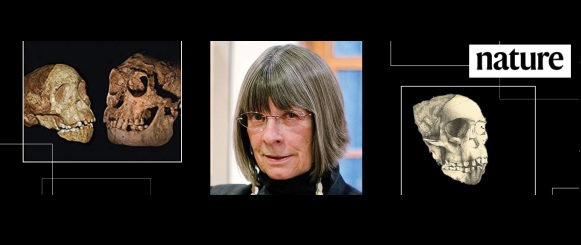SAR senior scholar Dean Falk was recently invited by Nature to contribute an essay on influential work originally published in the journal—specifically, South African anatomist and paleontologist Raymond Dart. In “Australopithecus africanus: The Man-Ape of South Africa,” his paper of 1925, Professor Dart described a fossil found in Taungs (now Taung), South Africa, that was not only remarkably well preserved, but also provided evidence that humans originated and evolved in Africa. Dart argued that this new species, “intermediate between living anthropoids and man,” confirmed Charles Darwin’s hypothesis that Africa, not Asia, was the cradle of humankind.
Read the full piece “How Australopithecus provided insight into human evolution” in Nature here.

Falk is a biological anthropologist who specializes in human brain evolution. In addition to being a senior scholar at SAR, she was a resident scholar in 2008–2009. She earned her BA and MA in anthropology from the University of Illinois, Chicago, and a PhD in anthropology from the University of Michigan. She is the Hale G. Smith Professor of Anthropology and a Distinguished Research Professor at Florida State University.
Her most recent book, co-authored with her granddaughter, is Geeks, Genes, and the Evolution of Asperger Syndrome (UNM Press, 2018). The information in her Nature piece draws from the book she wrote as a resident scholar at SAR, The Fossil Chronicles: How Two Discoveries Changed Our View of Human Evolution (University of California Press, 2011). She is currently working on a collaborative project about the brains of early ancestors in Africa (from the species of the fossil known as “Lucy,” Australopithecus afarensis) and is starting a project that explores the invention and spread of tools in early human relatives after they first separated from apes on the evolutionary family tree.
Learn more about SAR’s senior scholars and their ongoing research.
